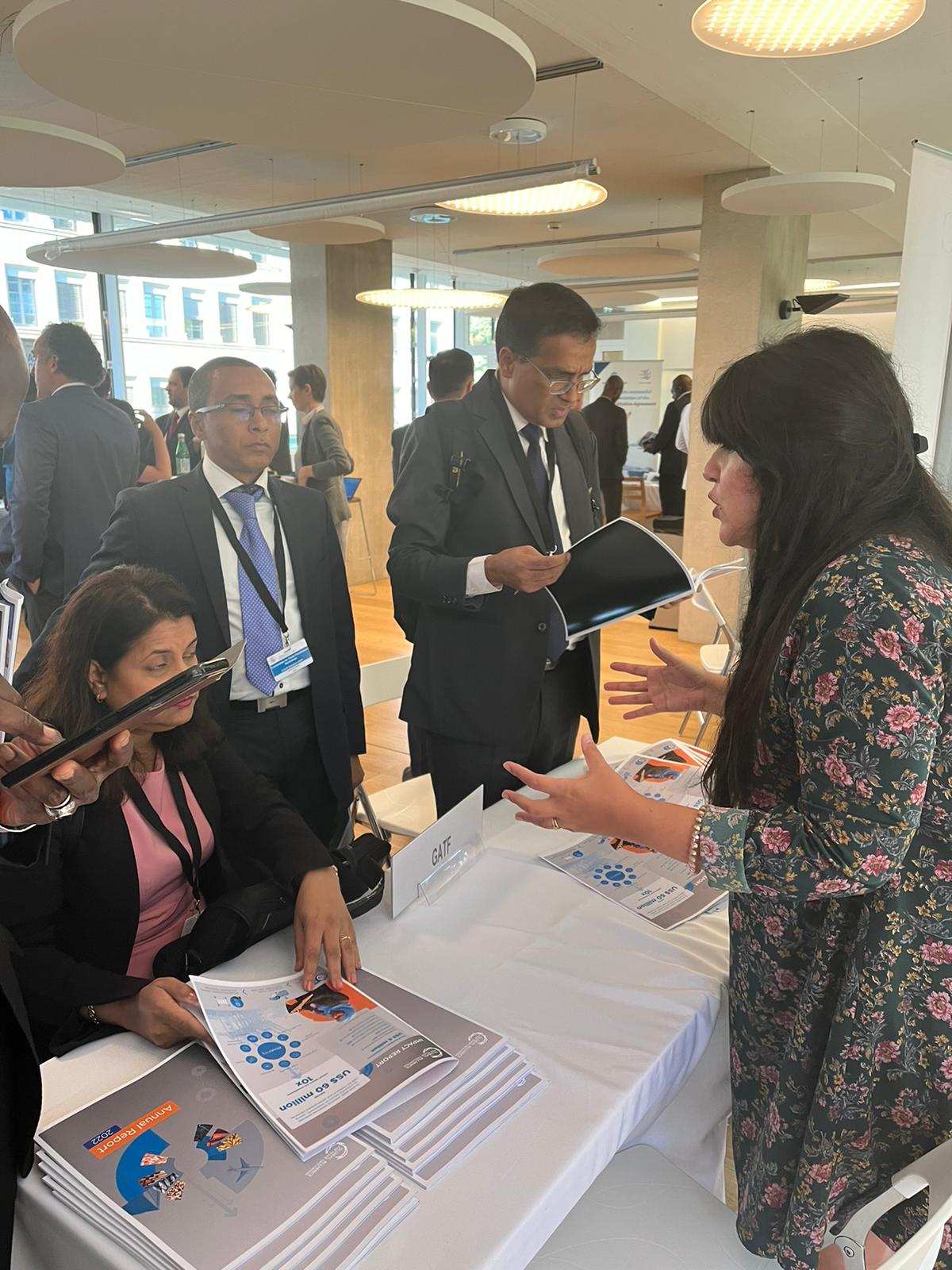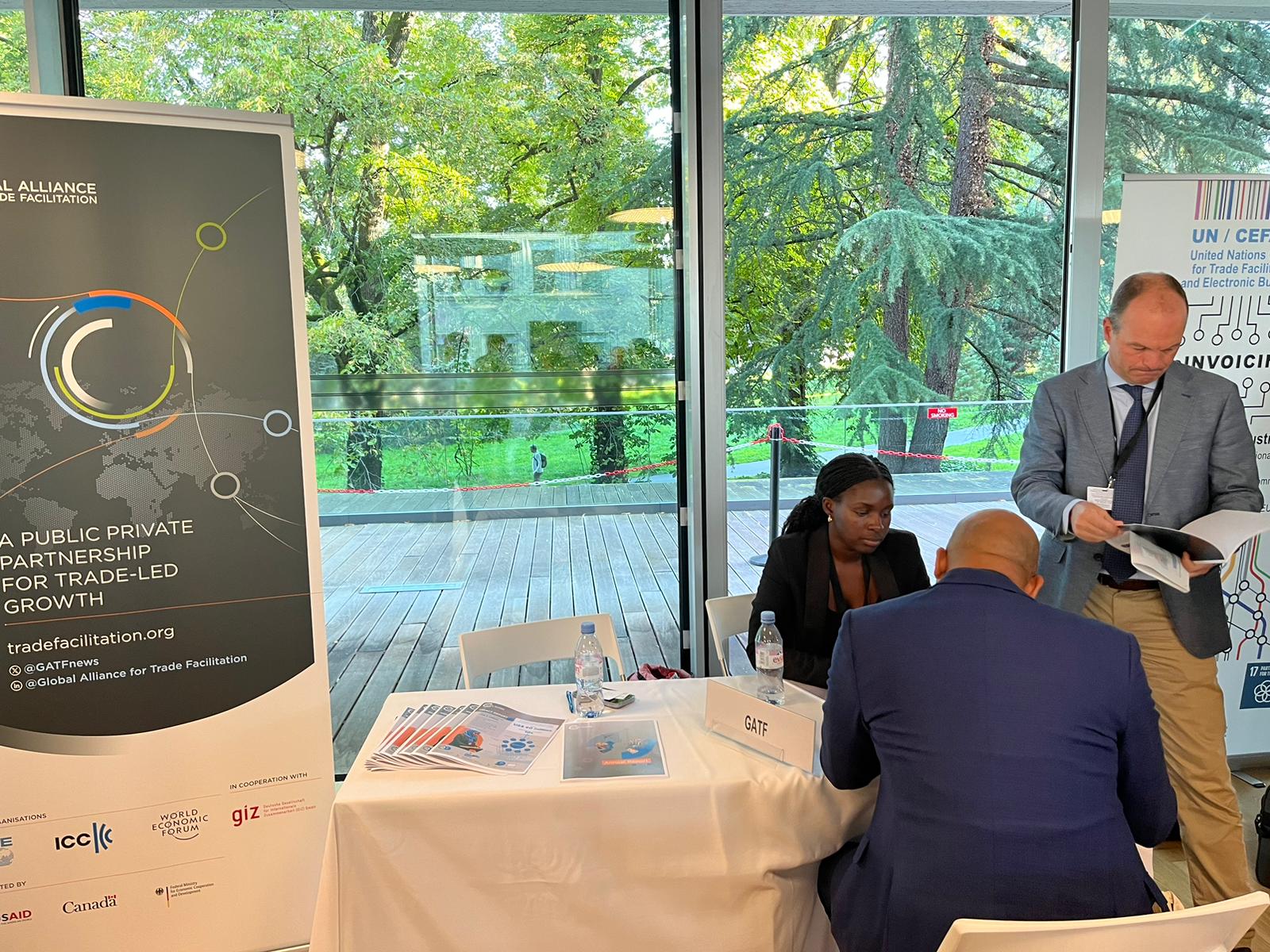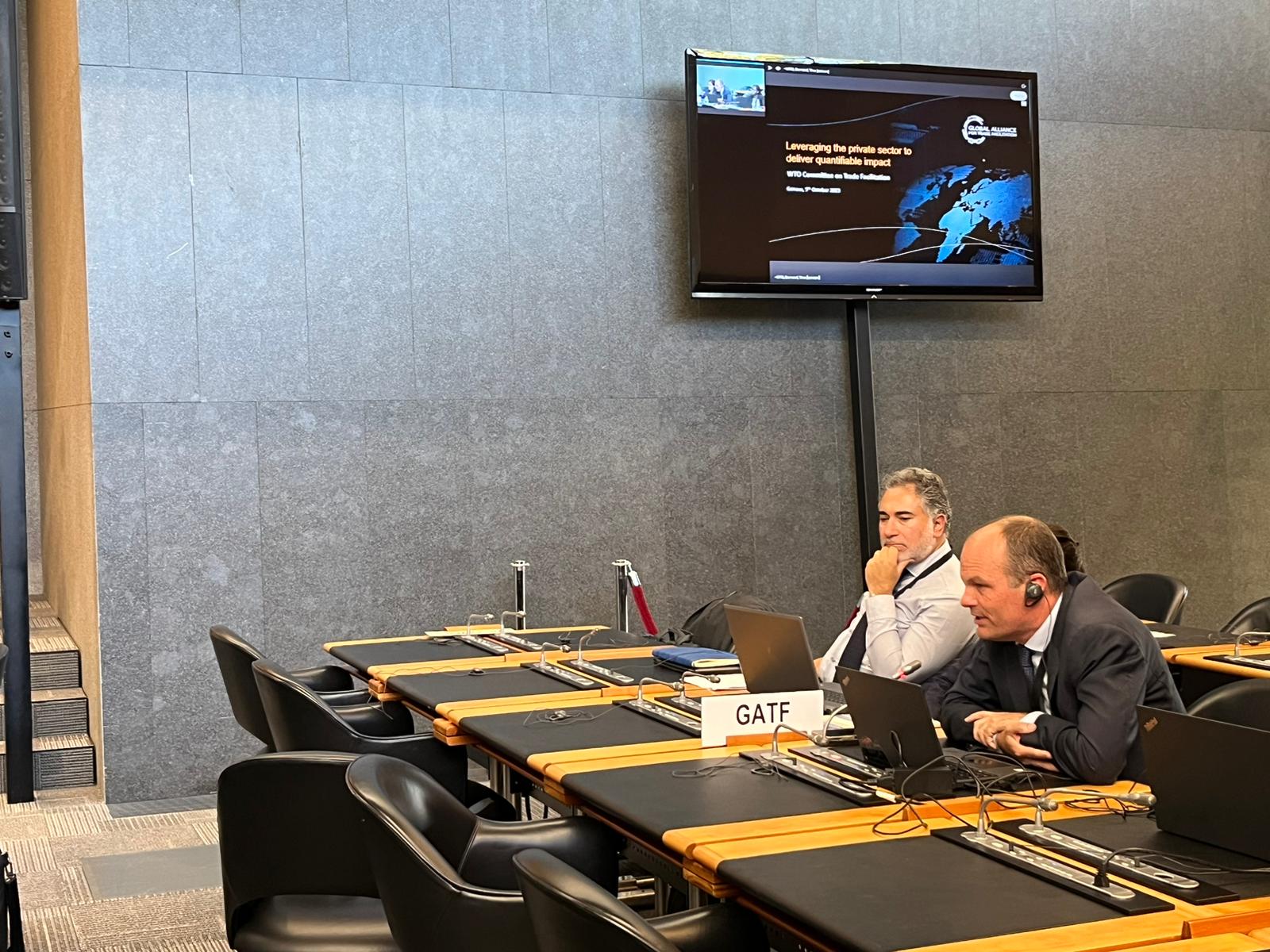Contributors to the World Trade Organization (WTO) Trade Facilitation Week 2023, held October 2-6 in Geneva, referenced Alliance projects as contributors to streamlining trade in their countries, driving competitiveness and economic growth.
Throughout the event, in which Alliance Director Philippe Isler participated, speakers from developing countries and least developed countries (LDCs) shared their experiences of Trade Facilitation Agreement (TFA) implementation and the challenges they faced in fulfilling their remaining TFA obligations, including the need for technical assistance and capacity building. 
In his address Moawiah Atiat, Counsellor (Economic Affairs), Permanent Mission of the Hashemite Kingdom of Jordan to the United Nations Office at Geneva, referred to two Alliance projects, one complete the other in implementation.
Mr Atiat said both projects strengthened the significant steps Jordan had already taken towards implementing its TFA commitments in full, emphasising the launch of the national Single Window in 2018. This online portal has cut the time and cost of trade significantly, boosting public and private sector competitiveness.
He said that both projects would give micro, small, and medium enterprises (MSMEs), representing about 90% of all businesses in Jordan, a better opportunity to participate in global trade, due to reductions in clearance times and enhanced efficiency at customs points.
The Alliance supported Jordan in adopting the International Plant Protection Convention (IPPC) ePhyto Solution, which has been compulsory since February 2023, with projected savings of 150,000 hours and over US $1 million a year.
 Among other benefits, the quick, accurate, low-cost exchange of phytosanitary certificates is also enhancing Jordan’s global trade competitiveness and contributing to food security by ensuring that produce is processed more quickly at border checkpoints, mitigating spoilage and waste.
Among other benefits, the quick, accurate, low-cost exchange of phytosanitary certificates is also enhancing Jordan’s global trade competitiveness and contributing to food security by ensuring that produce is processed more quickly at border checkpoints, mitigating spoilage and waste.
Jordan was the first country in the world to introduce a version of the IPPC ePhyto Solution in Arabic and the success of the project has encouraged interest from other Middle Eastern countries.
The Alliance’s public private partnership approach catalysed strong engagement from government and business, improving trust in the reform process. This was a precursor to a second Alliance project designed to establish a web-based system for facilitating electronic certificates of origin (eCOs) with possible integration into the national Single Window.
The contribution from Ingrid Haydee Huapaya Puicón, Customs and Trade Facilitation Coordinator, Ministry of Trade and Tourism of Peru, further highlighted the diversity of Alliance projects across the world.
Ms Puicón detailed several trade facilitation reforms in her country over the past few years, including an Alliance-supported project in making processed food export procedures easier to navigate and more predictable.
The Alliance worked with the private sector and the agency responsible for issuing food export licences, the General Directorate of Environmental Health, and Food Safety (DIGESA) in making its procedures more transparent, consistent, and user-friendly, with special emphasis on MSMEs, many of them women-owned or led.
Following the successful conclusion of the project earlier this year, exporters can anticipate faster issuance of pre-market authorisations and a more business-friendly environment for conducting international trade.
In a presentation entitled ‘Leveraging the Private Sector to Deliver Quantifiable Impact’ Mr Isler said engaging business was essential for fulfilling TFA commitments and to meeting new and evolving trade-related challenges, including climate change, environment, food security and crisis management.

